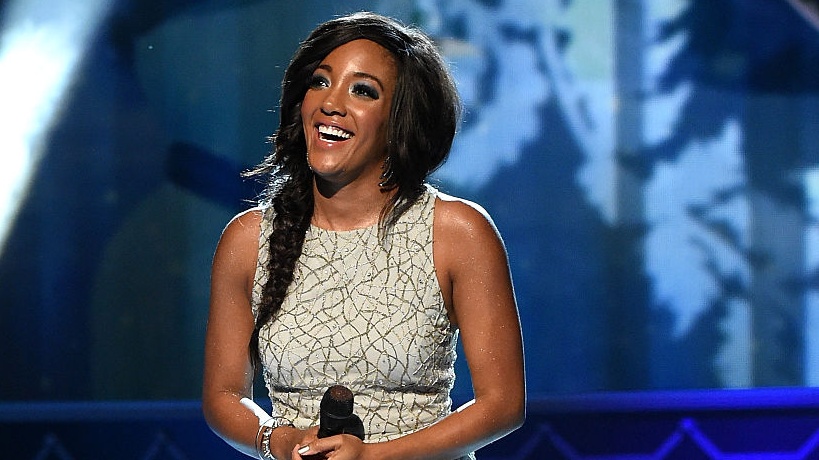Country music singer Mickey Guyton co-hosted Sunday’s Academy of Country Music Awards alongside Keith Urban, making history as the first Black woman to fill the role. In March, Guyton also became the first Black solo female artist to be nominated for a Grammy in a country music category for her song “Black Like Me,” a ballad that highlights her obstacles as a Black woman.
On her Instagram, the vocal powerhouse expressed that she “still can’t believe this is real.”
The 37-year-old, born Candace Mycale Guyton, also shared how Keith Urban, who is from Australia, is helping advance her recognition in a genre that originates in rural communities of the American South/West.
“I'm sure when he [Urban] first started he wasn't getting the most welcoming arms and now he's here,” Guyton told NBC News. “He's using his platform to uplift me, and that means so much.”
Typically, country music is stereotyped as being exclusively for white audiences, with white males dominating the genre’s artist demographic. According to PBS, country music stems from “deep and intertwined roots,” from fiddle tunes and hymns, to smoky saloons and secluded Appalachian hollows to barrios along the southern border and the vast spaces of the American West.
“Well, a lot of people, especially today, are only seeing Lil Nas X or think that country music is just white guys, beers and trucks, and that is not the case,” the Arlington, Texas native said. “There's all types of country music. There have been a lot of Black people in country music pounding the pavement for a very long time.”
Rissi Palmer, who in 2007 became the first Black woman to chart a country music song since Dona Mason in 1987, admitted that her label backpedaled after hearing the opening lyrics to her debut single, “Country Girl.”
“I said that I am not white in the first verse, and the label was like, ‘No, no, no,’” she recalled, also revealing she rewrote the lyrics to make it feel more universal, PBS reported. “It was very intentional when I wrote that song to talk about all the women, or all the people, that might not necessarily fit in the box, but are still of the same mindset.”
Guyton told Gayle King in an interview that she had to figure out navigating country music as a Black woman, dealing with hardships along the way,
“I did get called the n-word at a show, and that was devastating to me,” she said.
Recently, as the United States grapples with racial injustice, country music has also made an effort to reckon with its long-standing and convoluted rapport with race. In the aftermath of George Floyd’s killing, country music group, The Dixie Chicks, dropped the word “dixie” due to its association with the Mason-Dixon line that demarcated slave and free states. The group is now referred to as just "The Chicks."
During a March interview with Ellen Degeneres, country music singer Maren Morris admitted that she has an advantage in the genre because of the fact she is a white woman.
“I’m a white woman in country music,” Morris said. “I already sort of have this leg up. Even though there is a huge disparity between men and women in our genre, there is even more of a disparity between white women and Black women trying to be in country music.”
“There are so many Black women and men who adore country music and don’t feel the door is open for them, even a crack,” she continued. “Country music as a genre, “is definitely stepping up to the plate, slowly but surely.”
Guyton also expressed optimism for her place in country music and the changes that are materializing within the genre.
“I am extremely hopeful," she said. “I know great things take time, and I can’t expect everything to change in an instant. Sometimes you have to meet people where they’re at."
“I hope that I can now be a beacon for a lot of people, a beacon of light, to show that if you stick to your true self and what is true to you, anything can happen,” she added.
